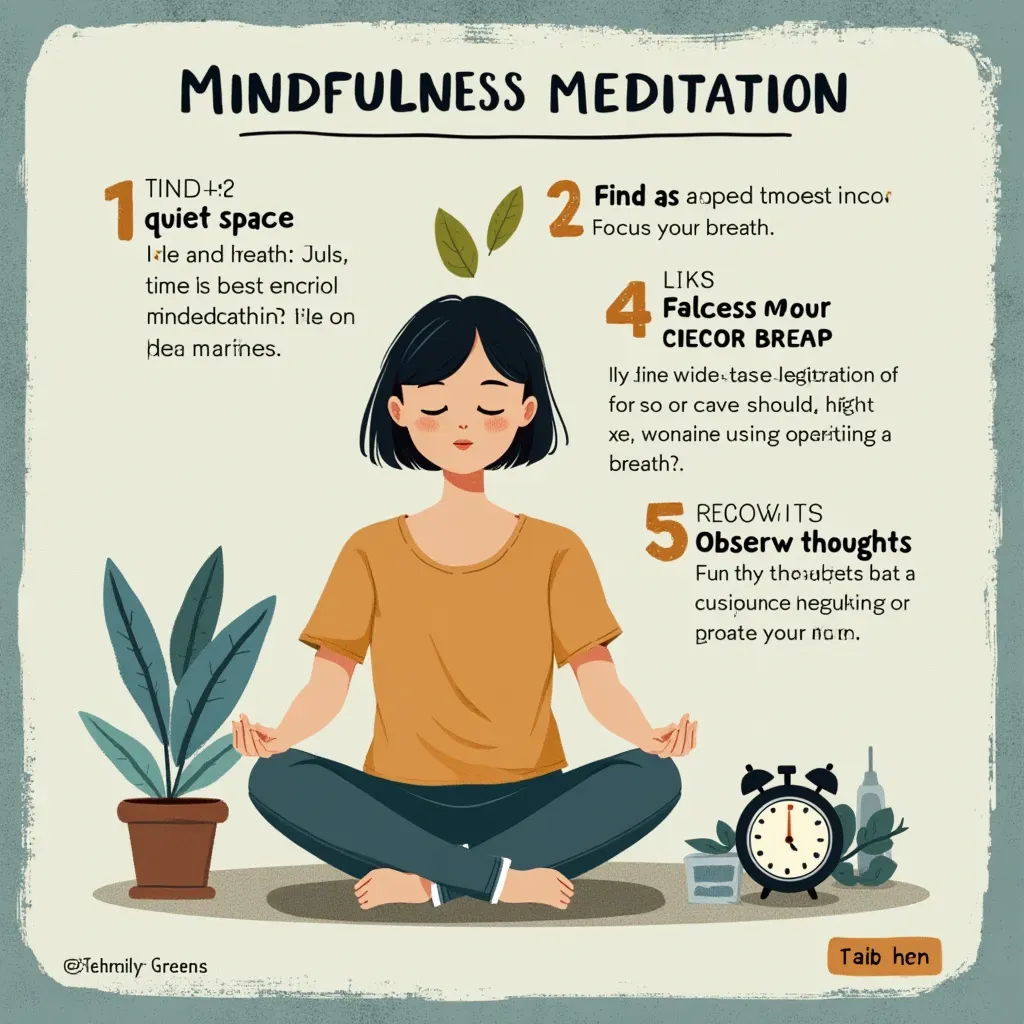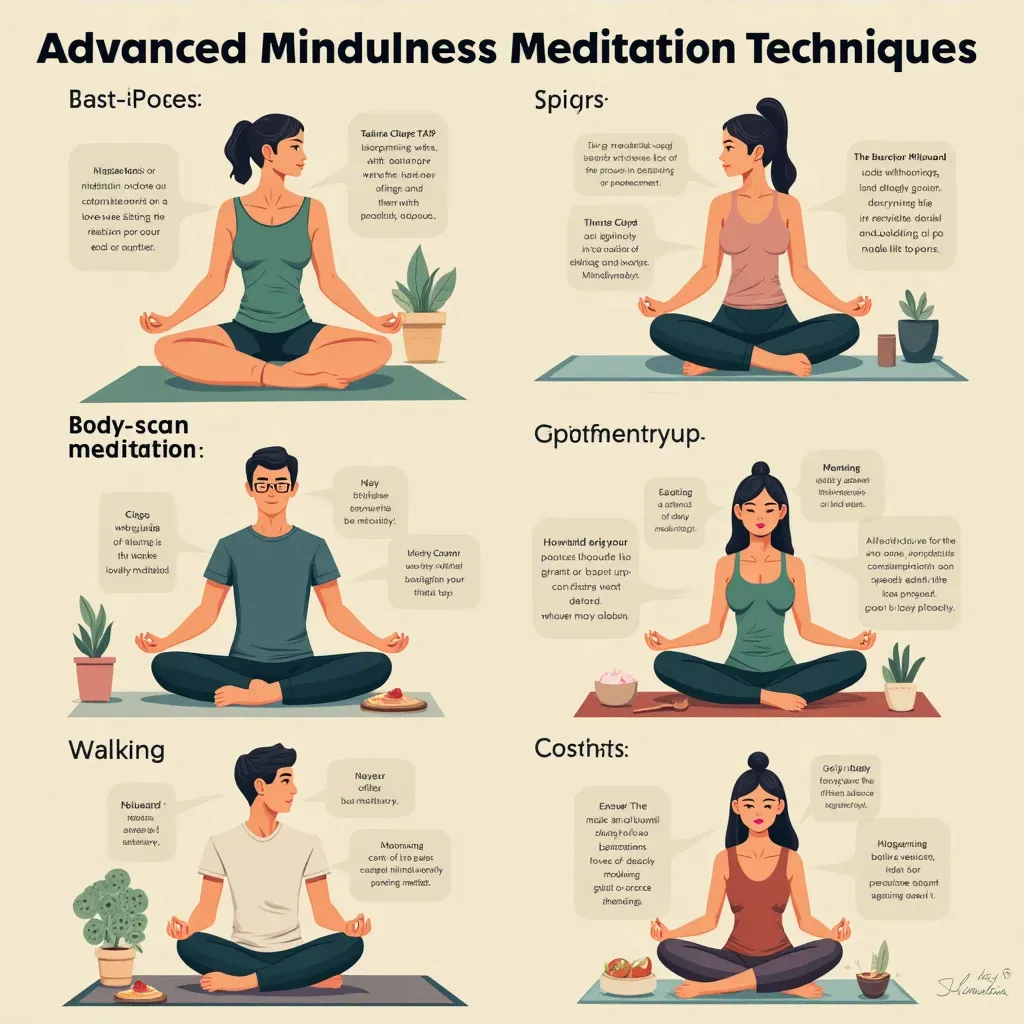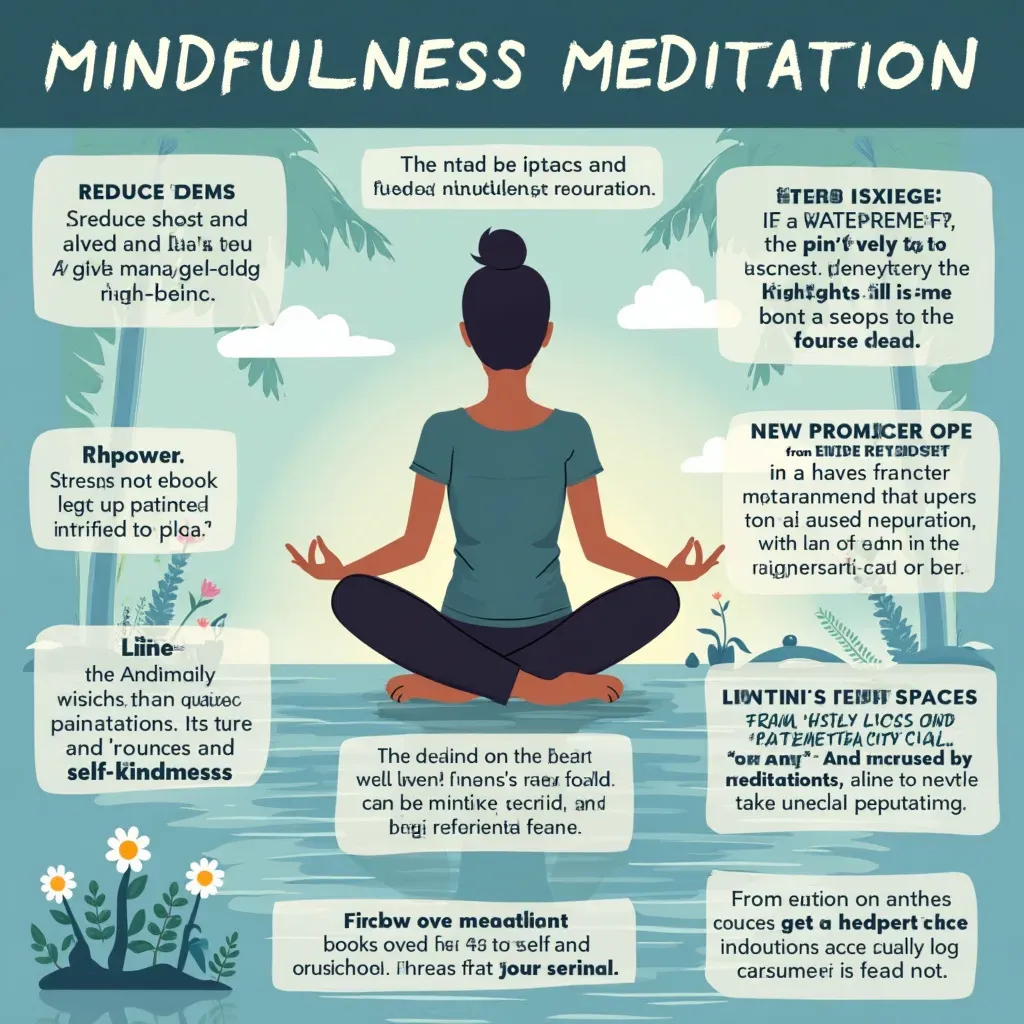Mastering Mindfulness Meditation: A Comprehensive Guide to Reducing Stress and Finding Inner Peace
Discover the transformative power of mindfulness meditation! Learn how to reduce stress and find inner peace with our comprehensive guide. 🌟

Mastering Mindfulness Meditation
In today's fast-paced world, finding inner peace and reducing stress can be a challenge. Mindfulness meditation, a practice rooted in ancient traditions, has become a powerful tool for achieving mental clarity and emotional stability. In this comprehensive guide, we will explore the fundamentals of mindfulness meditation, its numerous benefits, and provide a step-by-step approach to incorporating it into your daily routine. Whether you're a beginner or an experienced meditator, this guide will offer valuable insights to help you master the art of mindfulness meditation.

Introduction to Mindfulness Meditation
Mindfulness meditation is a practice that involves paying full attention to the present moment without judgment. This practice has its roots in ancient Buddhist traditions but has gained popularity worldwide for its profound impact on mental health and well-being. By focusing on your breath, sensations, and thoughts, you cultivate a state of awareness that allows you to experience life more fully.
Meditation works by activating the parasympathetic nervous system, which helps to reduce the production of stress hormones like cortisol. This physiological change can lead to lower blood pressure, improved heart rate, and a general sense of calm. Moreover, mindfulness meditation encourages a non-reactive approach to thoughts and emotions, which can help you manage stress and anxiety more effectively.
Many scientific studies have shown that regular mindfulness meditation can lead to various benefits, including enhanced concentration, emotional resilience, and better sleep. As you embark on your mindfulness journey, remember that consistency is key. The more you practice, the more you will experience the transformative effects of mindfulness meditation.

Benefits of Mindfulness Meditation
One of the most significant benefits of mindfulness meditation is its ability to reduce anxiety and stress. By fostering a state of awareness and acceptance, mindfulness meditation helps you to break the cycle of negative thought patterns that contribute to stress and anxiety. A study published in the Journal of the American Medical Association (JAMA) found that mindfulness meditation can be as effective as antidepressants for treating anxiety and depression.
Another benefit of mindfulness meditation is improved focus and concentration. In our multitasking world, maintaining attention on a single task can be challenging. Mindfulness meditation trains the brain to stay present, which can enhance your ability to concentrate and complete tasks efficiently. This improvement in focus can also lead to increased productivity and a better overall performance at work or school.
Mindfulness meditation has also been shown to improve emotional regulation. By observing your thoughts and feelings without judgment, you develop a better understanding of your emotional responses. This heightened self-awareness allows you to respond to challenging situations more calmly and thoughtfully, rather than reacting impulsively.
Additionally, mindfulness meditation can enhance your overall well-being. It promotes a sense of inner peace and contentment, which can improve your quality of life. Whether you're dealing with chronic pain, insomnia, or everyday stressors, mindfulness meditation offers a natural and holistic way to enhance your physical and mental health.

How to Practice Mindfulness Meditation
Starting a mindfulness meditation practice may seem daunting, but with a few simple steps, you can begin to incorporate it into your daily routine. Here's a step-by-step guide to help you get started:
- Find a Quiet Space: Choose a quiet and comfortable space where you won't be disturbed. This could be a corner of your room, a park, or any place where you feel at ease.
- Set a Timer: Start with a short duration, such as 5-10 minutes, and gradually increase the time as you become more comfortable with the practice.
- Focus on Your Breath: Sit or lie down in a comfortable position. Close your eyes and take a few deep breaths. Then, bring your attention to your breath, noticing the sensation of the air entering and leaving your nostrils.
- Observe Your Thoughts: As you meditate, you may notice thoughts and emotions arising. Instead of engaging with them, simply observe them and let them pass without judgment. Return your focus to your breath.
- Practice Regularly: Consistency is key to reaping the benefits of mindfulness meditation. Aim to practice daily, even if it's just for a few minutes.
Remember, there's no right or wrong way to meditate. The goal is to cultivate a state of mindful awareness, so be gentle with yourself and enjoy the journey.

Advanced Techniques and Tips
For those who have already established a mindfulness meditation practice, exploring advanced techniques can deepen your experience and enhance the benefits. Here are some advanced mindfulness meditation techniques and tips:
- Body Scan Meditation: This technique involves focusing on different parts of your body, starting from your toes and moving up to your head. As you scan each part, notice any sensations, tension, or discomfort, and breathe into those areas to release any tension.
- Loving-Kindness Meditation: Also known as Metta meditation, this practice involves directing loving-kindness towards yourself and others. Start by silently repeating phrases like "May I be happy, may I be healthy, may I be safe," and then extend these wishes to loved ones, acquaintances, and even people you find challenging.
- Walking Meditation: This involves practicing mindfulness while walking. Pay attention to the sensation of your feet touching the ground, the movement of your legs, and the rhythm of your breath. Walking meditation can be a great way to incorporate mindfulness into your daily routine.
- Mindful Eating: This practice involves paying full attention to the experience of eating. Notice the colors, textures, and flavors of your food. Chew slowly and savor each bite, bringing awareness to the entire process of eating.
- Consistent Practice: Maintaining a consistent meditation practice can be challenging, but it's essential for long-term benefits. Set a regular time for meditation, create a dedicated meditation space, and consider joining a meditation group or community for support.
By incorporating these advanced techniques into your practice, you can deepen your mindfulness meditation experience and continue to reap the benefits for your mental and emotional well-being.

Conclusion and Resources
Mindfulness meditation is a powerful practice that can transform your life by reducing stress, enhancing emotional regulation, and promoting overall well-being. Whether you're a beginner or an experienced meditator, incorporating mindfulness into your daily routine can help you find inner peace and live a more fulfilling life.
For those interested in further exploring mindfulness meditation, there are numerous resources available. Consider checking out guided meditation apps like Headspace, Calm, or Insight Timer. These apps offer a variety of meditation practices, from beginner to advanced levels, and can provide the guidance and support you need to stay consistent with your practice.
Additionally, there are many books and online courses that delve deeper into the principles and techniques of mindfulness meditation. Some recommended reads include "Wherever You Go, There You Are" by Jon Kabat-Zinn and "The Miracle of Mindfulness" by Thich Nhat Hanh. Online platforms like Coursera and Udemy also offer comprehensive courses on mindfulness and meditation.
As you continue your mindfulness journey, remember to be patient and kind to yourself. Mindfulness meditation is a lifelong practice, and each moment of mindfulness brings you closer to a state of inner peace and well-being. Start today, and experience the transformative power of mindfulness meditation.
In conclusion, mindfulness meditation offers a pathway to reducing stress, enhancing emotional well-being, and finding inner peace. By understanding its principles, practicing regularly, and exploring advanced techniques, you can experience the profound benefits of mindfulness in your daily life.
We encourage you to take the first step today and start your mindfulness journey. Explore the resources provided, join a meditation community, and most importantly, be consistent with your practice. The rewards of mindfulness meditation are immense, and with dedication and patience, you can transform your life.
For more insights and tips on mindfulness and personal well-being, check out our other articles on Blab Life. Happy meditating! 🌟




